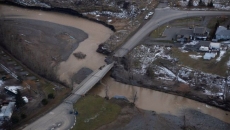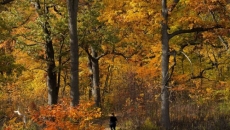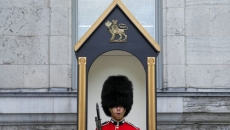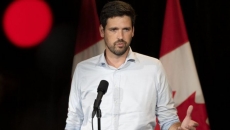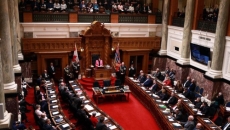Chief Robert Michell says relief isn't the right word to describe his reaction as the search begins for unmarked graves at the site of a former residential school he attended in northern British Columbia.
Michell is the chief of Stellat'en First Nation some 160 kilometres west of Prince George, B.C., and a survivor of the Lejac Indian Residential School where a geophysical survey is underway to find children missing since the facility closed in 1976.
"It's not necessarily a relief," Michell said. "I think it's come full circle because you watch the news every day, you watch what's happening in other parts of British Columbia in relation to the residential schools … you knew at some point Lejac was going to be on the map to do this too.
"And once the announcement came, then the hard conversation started as to where do we look? What are we looking for?"
The Stellat'en and nearby Nadleh Whut'en Indian Band said this week they have launched a search of the Lejac site. The announcement comes as the Nadleh Whut'en band hosts a gathering of more than 20 First Nations from across B.C. and beyond to share the knowledge gained in their search for unmarked graves.
Representatives from communities surveying 18 former residential schools and three former hospitals are attending the meeting, which is the fifth of its kind.
Nadleh Whut'en Chief Beverly Ketlo said many at the gathering are looking to the Tk'emlúps te Secwépemc Nation for advice since their May 2021 announcement that ground-penetrating radar had discovered 215 possible unmarked graves at the Kamloops Residential School site.
Ketlo said the gathering also allowed the Nadleh Whut'en to speak directly to members of the 74 bands that had children at the Lejac school during its 54 years of operation.
"We need to learn from each other, what process do we use, what needs to be on the list to make sure we don't miss anything when it comes to the investigation," Ketlo said. "Which teams do we bring in? Which support teams do we bring in for wellness for our survivors?"
About 7,850 Indigenous children attended Lejac school, and the Nadleh Whut'en band said there were 38 documented deaths at the facility that was razed in 1990.
Ketlo said the survey at the site would involve ground-penetrating radar and magnetometry, as well as possible involvement from archeological teams. The whole process of locating possible graves, including talking to survivors about their memories of what happened, will likely take many years to complete.
"This process is not a one- or two-year project," Ketlo said. "This process is going to take years."
Michell said having other First Nations at the gathering will help guide the community and its handling of survivors' trauma.
"The thing that's going to be the most advantageous is the fact that individual survivors of individual schools do not feel alone or isolated, that there is a group of schools now that are looking into the same trauma inflicted (and) things that took place," Michell said.
"To have all of them gather and exchange stories, exchange ideas, exchange processes going forward on how to deal with the findings and what to do next goes a long way."
The experiences of Tk'emlúps te Secwépemc Nation and others would also help understand the complexities of the technical search process, he said.
"I think a lot of people have the misconception that you put a piece of equipment on the ground, you find an anomaly and there it is," Michell said. "That's not how it works … not every anomaly is going to be a body. So a lot of that has to take it into consideration.
"The next step is then to decide, once all the determination has been made that an anomaly could be a body. What do you do with that particular person? Do you move forward with exhuming? Those are the collaborative type of discussions that are involved … things like, 'This is what we've done, whether it worked or not, and we suggest that you do this.'"
A joint statement by the Nadleh Whut'en band, the Stellat’en First Nation and the B.C. Assembly of First Nations says the three-day meeting will end on Thursday.

